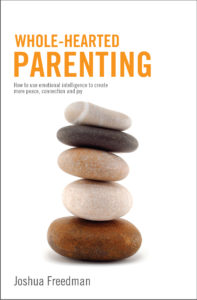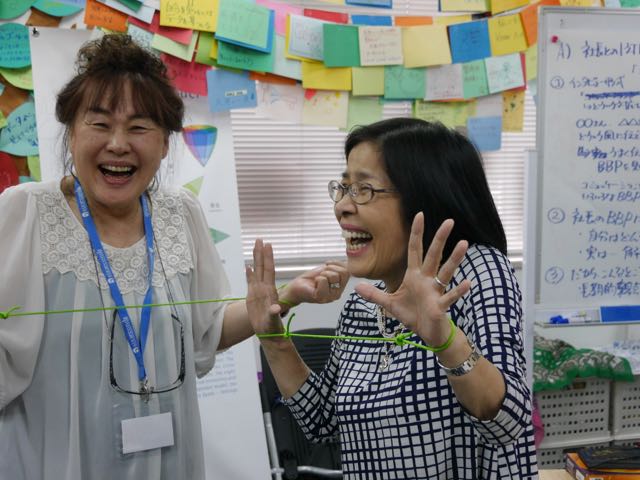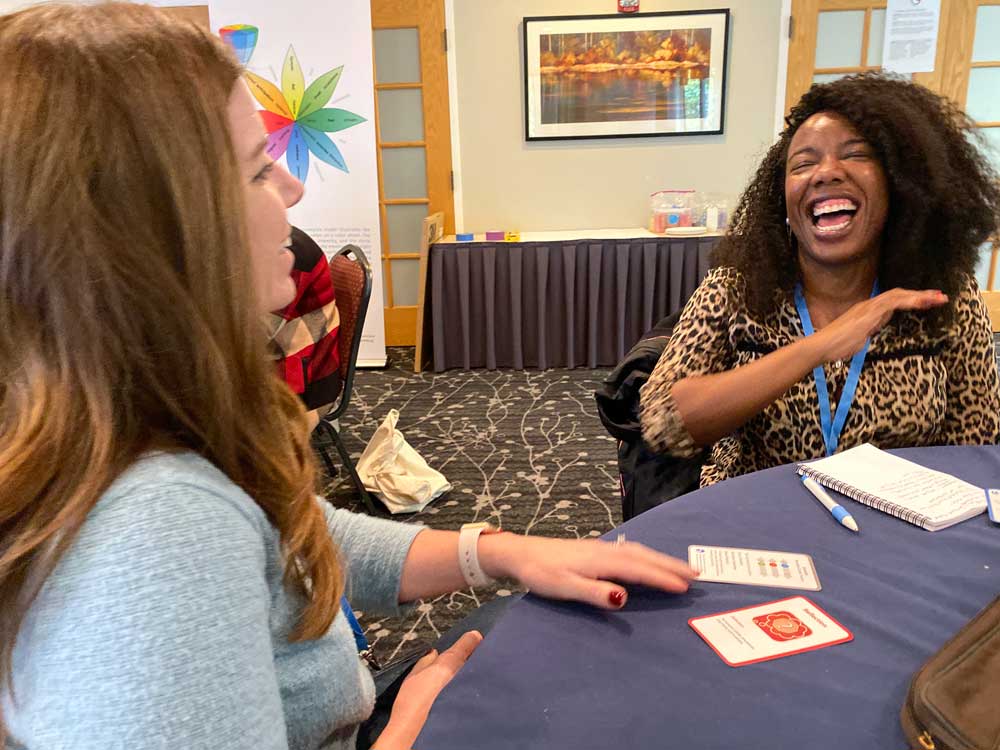Parent with Emotional Intelligence
Increase awareness, make better choices, and be more purposeful as a parent. Learn to navigate your child’s emotions – and your own – more effectively.
We support parents and families to thrive with emotional intelligence.
Parenting is the toughest job on the planet. There’s nothing like it — little to no training, steep learning curve, constant failure, and punishing hours. It increases stress and complexity, and often evokes big, challenging feelings. Emotional intelligence is being smarter with feelings, and it is an essential skillset for parents to cope and thrive.
Parents who practice emotional intelligence develop essential skills alongside their children, including how to:
• Navigate increasing complexity and stress
• Foster positive, healthy relationships
• Spark innovation and resilience
• Nourish compassion and inner peace
Research links emotional intelligence to better health, academic achievement, and stronger relationships.
Identify your patterns and
make more intentional choices.
How do YOU respond to an infant’s sleepless nights, a toddler’s temper tantrums, or to a teenager’s rude behavior? Parents all over the world use Six Seconds tools and methods to cope with stress, navigate complexity, maintain balance and energy, and build healthy, sustainable relationships with their children.

Build a foundation for success
with emotional intelligence.
Explore our major areas of expertise:
 Navigate Stress
Navigate Stress
It’s easy to get overwhelmed. Learn techniques to manage stress and navigate emotions more effectively.
 Nourish Compassion
Nourish Compassion
Teach your children how to respond with empathy to themselves and others.
 Build Trust
Build Trust
Use emotional intelligence to create a shared feeling of psychological safety and belonging.
 Grow Self-Awareness
Grow Self-Awareness
Recognize your patterns around specific thoughts, feelings and actions – and learn to see all your options.
Parenting Resources

10 Simple Ways to Build Trust as a Parent

Kids & Screen Time: 5 Practical Tips for Parents

Want Less Conflict with Your Kids? Try Empathy
3 Steps to Get Started Today
1. Read Whole-Hearted Parenting
How can emotional intelligence help us be the parents we mean to be?
“Josh Freedman offers parents sane and sound advice about how to raise good kids. Whole-Hearted Parenting is a reader-friendly, no-blame guide to parenthood that any mom or dad will find of great use – especially in those trying moments when it’s not clear what to do.”
You’ll learn practical tips and techniques to:
- Effectively blend thinking and feelings in your parenting
- Use emotions to help focus and motivate your kids
- Leverage the power of optimism to make parenting more fun
- Respond intentionally instead of reacting on autopilot
- Strengthen empathy to better understand and influence your child

2. Join Emotional Intelligence Certification
Want to unlock your potential as a parent with emotional intelligence training?
We recommend two courses for parents looking to grow and practice emotional intelligence:
Unlocking EQ – Dive into the how, what, and why of emotional intelligence and learn about the Six Seconds Model of Emotional Intelligence. Two 1.5 hour sessions, live online, and a prerequisite for all advanced courses.
EQ Practitioner
This course starts with your customized EQ assessment, followed by three full days of hands-on, dynamic instruction, activities, current neuroscience, practical tips and more.
You’ll learn how to:
- Clarify your purpose and most important goals.
- Explore your patterns and self-limiting beliefs.
- Make better decisions by evaluating all your options.
Leave with an in-depth understanding of emotional intelligence and practical new tools to apply immediately in your life.


3. Collaborate 1-on-1 with a Certified Emotional Intelligence Coach.
Ready to dive in and start solving your most pressing problems with a certified EQ coach?
Combine Six Seconds’ assessments for both adults and youth with experts who can help you unpack the results and turn insight into action. Just contact us and we’ll put you in touch with a Six Seconds Certified Emotional Intelligence Coach.

Featured Articles
Emotional Intelligence at Work: Stress Is (Still) Rising Globally. Here Are 3 Evidence-Based Solutions
Globally, 44% of employees globally reported feeling stressed A LOT of the day yesterday. Here are 3 solutions to reduce stress.
Emotional Intelligence at Work: 3 Steps to End Meeting Madness and Its Emotional Toll
The modern workplace has a meeting problem, and it takes an emotional and financial toll on people. Here are 3 steps to restore sanity.
Emotional Intelligence at Work: 7 Principles to Rewrite the Unwritten Rules of Expressing Emotions
An organization’s emotional culture influences employee satisfaction, burnout and the bottom line. Is it time to rethink your rules?
Emotional Intelligence at Work: Why Traditional Performance Reviews Often Backfire – and 6 Principles to Follow Instead
Not a fan of performance reviews? You’re not alone. Here’s why the annual performance review doesn’t work – and what to do about it.
Building Inclusion Across Borders: Three Lessons from Make-A-Wish Foundation’s DEI Launch
Six Seconds and Make-A-Wish launch a pilot DEI program in Europe fueled by emotional intelligence – with promising results.
Emotional Insights for Leaders: What Is Overwhelm Trying to Tell You?
Practical tips and activities to turn feelings of overwhelm into clarity and productivity – for you and your team.







